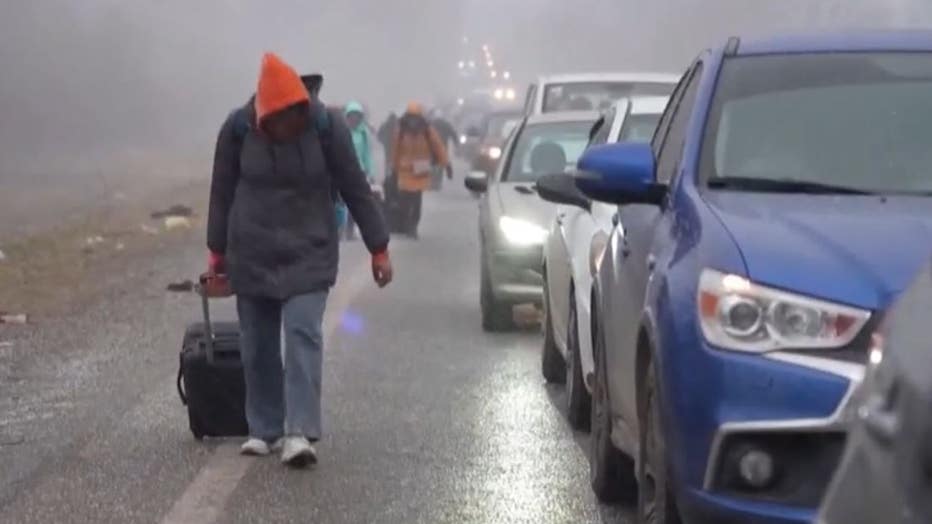How to help Ukraine

How to help Ukraine
To protect donors from potential scams related to the war in Ukraine, GoFundMe.com mobilized a crisis team and created a list of verified fundraisers.
MILWAUKEE - As Wisconsinites watch the war unfold in Ukraine, many want to help, but experts warn of scams and illegitimate fundraising sites.
The Better Business Bureau says so far, there are no direct reports of any scams when it comes to helping Ukraine, but they know that will change and scams could already be out there. There are steps you can take to make sure you're donating to a legit organization.
"We have not seen any scams yet but isn’t to say they’re not out there," said Laura Sutherlin, Wisconsin Department of Agriculture, Trade and Consumer Protection.
As Wisconsinites look to help Ukraine, the Wisconsin Department of Agriculture, Trade and Consumer Protection hopes to get in front of scammers looking to profit from the crisis.

SIGN UP TODAY: Get daily headlines, breaking news emails from FOX6 News
"You might feel an urgency to give money right away, but that doesn’t relieve you of an obligation to really do your research beforehand."
Experts say you should watch out for odd forms of payment and avoid sites asking for urgent funds. It's also recommended that you research the infrastructure of an organization.
"When you’re in a foreign country, and there’s a lot of infrastructure involved, that’s always a good place to look, right, because it has to be an entity that is on the ground, able to deploy in the foreign land," said Sutherlin.

The BBB warns fraudulent organizations often use names that resemble a well-established charitable organization, and because Ukraine is out of the country, there will likely be a lot of crowdfunding appeals which can be hard to vet.
"Ukraine is over there, and those crowdfunding relief appeals will be here, so know who you’re dealing with," said Lisa Schiller, BBB. "It’s often very difficult."

To protect donors, GoFundMe.com mobilized a crisis team, saying in a statement: "We are taking proactive measures regarding fundraisers related to the Ukraine humanitarian crisis, including reviewing each fundraiser to ensure it’s compliant with us and international laws before the fundraiser can start collecting donations."
Experts say if you come across something you think is a scam, you should take the time to report it.
More tips to avoid charity scams
- Watch for social media messages, e-mails, or text messages that claim to have exclusive information or photos. Clicking on attachments or clicking on links in these communications can expose your computer or phone to malicious software.
- Look up charities by name at charitynavigator.org or www.give.org.
- Use caution with any charities that have popped up since the invasion began. Research who will administer the funds, how they will be used, and if donations are tax-deductible.
- Be leery of high-pressure pitches, and requests to wire money.
- Avoid donating cash or wiring money to people or organizations you don't know.
- If you are donating via a public fundraising website (often called "crowdfunding"), review the site’s safety and security policies before making a payment. While these sites typically have a number of safeguards in place for users, understand that there is no way to guarantee that the information posted is completely accurate or truthful.
- If you question the legitimacy of a charity, seek out contact information for the operation rather than using the contact information provided in the pitch or search listing.
Featured
Russia-Ukraine: Students learn world history in real-time
It’s a conversation starter for students to help answer questions and talk about their fears.
Featured
Ukraine candle from Door County Candle Company; 'People just want to help'
If you’re looking for a way to support Ukraine, a Wisconsin candle company is providing the perfect opportunity.



